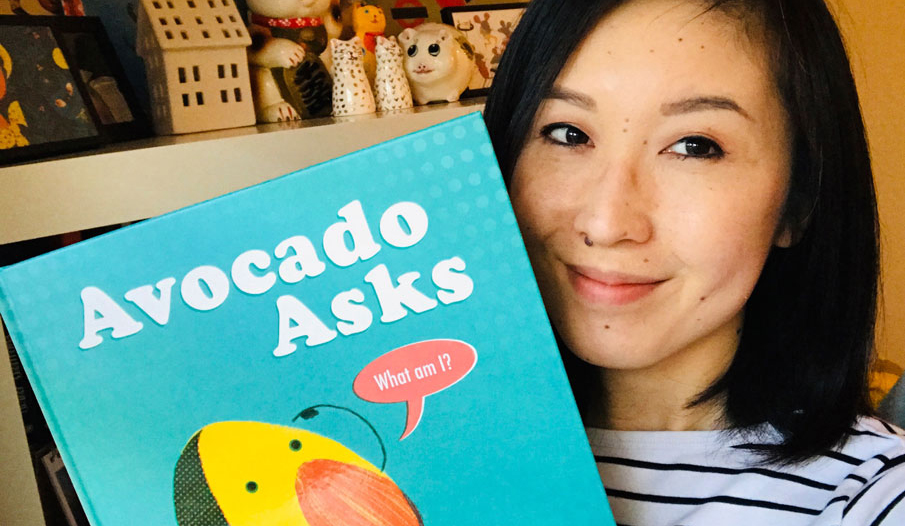Momoko Abe’s ‘Avocado Asks’ has been named as one of the Guardian’s best new children’s books and her work has been shortlisted for the World Illustration Awards.
Date: 14 May 2020
London Met alumna Momoko Abe's first picture book Avocado Asks has been named one of the top new children’s releases by the Guardian. Her work has also been shortlisted for the World Illustration Awards in the Children’s Book category and was exhibited at Somerset House last year.
Avocado Asks follows the story of an avocado in the fruit and veg aisle at the supermarket – feeling just fine until a young customer asks a difficult question: “is an avocado a fruit or a vegetable?” Avocado doesn’t know the answer, which sparks a quest for self-knowledge in this brilliantly funny book about finding who you are and embracing your uniqueness, instead of trying to put a specific label on yourself.
‘I worked on this story on and off for about three years,’ says Momoko, ‘so it’s great to finally see it out in the world! Obviously I was hoping that Avocado Asks would be picked up by the media, but being selected for the Guardian’s best new picture books of the month among such other brilliant authors and illustrators definitely wasn’t something I was expecting. I’m still pinching myself! But the real perks are the comments from kids. One of my friends sent me a video of her daughter reading Avocado Asks and she told me that her daughter had been reading the book every night. That’s the highest compliment a picture book maker could ask for.’
Momoko, who studied MA Audio-Visual Production at the Cass, said that after she turned 30, she realised she wanted to take her career in a new, more creative direction. She says, ‘I always liked drawing and writing stories and I wanted to do something for younger generations. In an interview, [the primatologist] Jane Goodall said the only way to change our materialistic mindset, which is causing a lot of harm on our planet, is “by working with young people who get it, who haven’t yet got caught up in this greedy, materialistic world.” And I agree. That’s why I decided to be a children’s illustrator.’
She works in television production alongside her illustration career, explaining, ‘it’s hard to support yourself as a new illustrator especially in London. I do my illustration work before or after my shifts, sometimes on my lunch breaks too. It sounds tough but when you love what you do, it doesn’t feel like work. Sometimes I find it hard to stop myself from working too much.
When asked about how her MA has influenced her illustration, she said, ‘On my MA, I made some short films. Because picture books are very visual, I find filmmaking skills transferable to picture bookmaking. When I plan the page breakdown, I think of it like editing – “what should I cut from this wide shot to? A close-up? Or quick cuts (small vignettes)?”
‘Also, when I compose a spread, I always imagine the scene as if I’m looking through a camera and think about what is the most interesting angle. It helps me create more cinematic illustrations. For my dissertation, I made a 10-minute film with no dialogue. The story was told by dance. Throughout the project, I learned a lot about how to use lighting, colours, costumes and props to help the storytelling. Because texts are limited in picture books, the same technique comes in very handy.’

